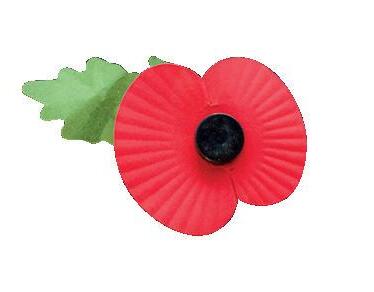
How The Salvation Army brought care and comfort in the Second World War
Hope is music to the ears in The Choral

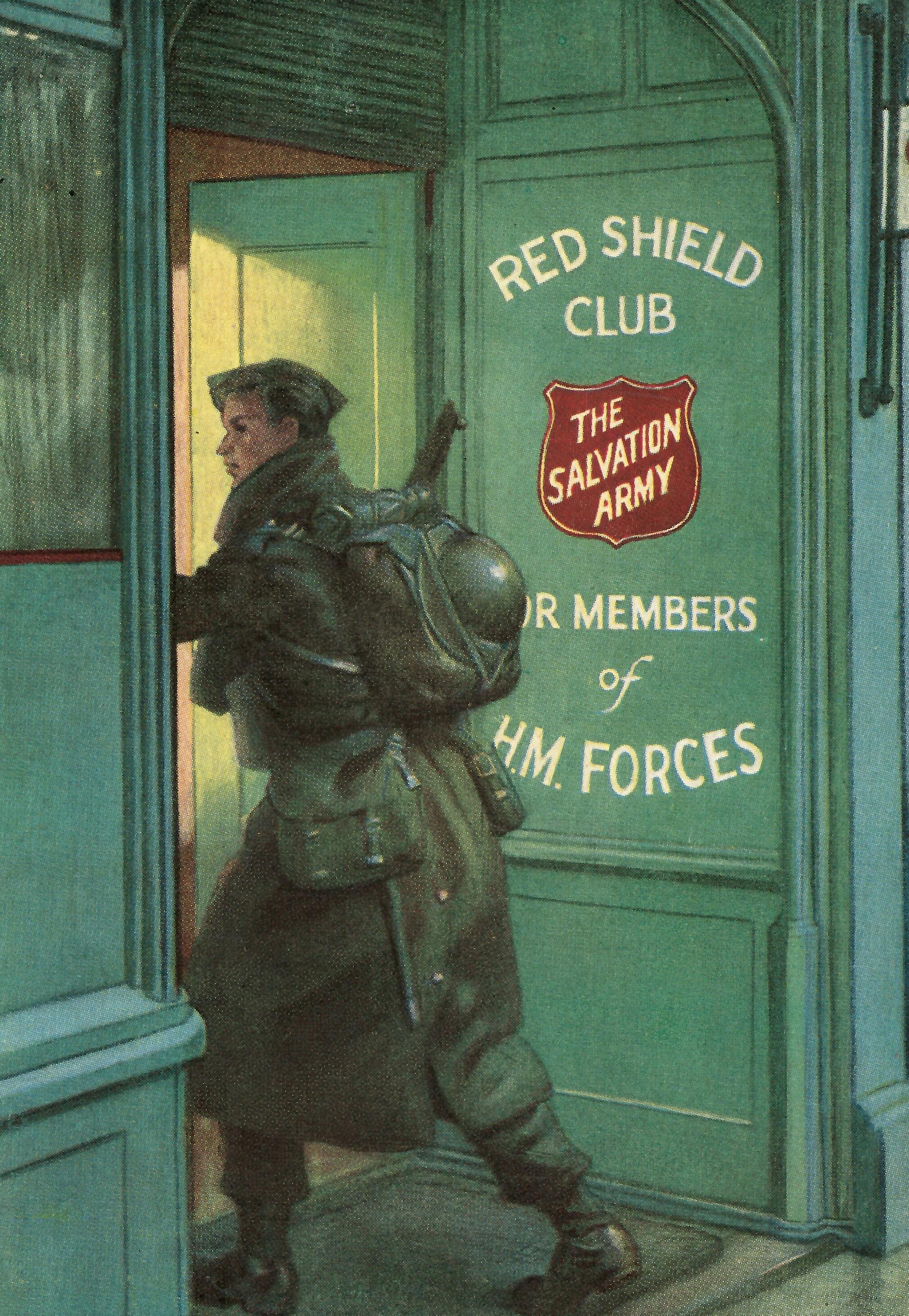


How The Salvation Army brought care and comfort in the Second World War
Hope is music to the ears in The Choral


The Salvation Army is a Christian church and registered charity seeking to share the good news of Jesus and nurture committed followers of him. We also serve people without discrimination, care for creation and seek justice and reconciliation. We offer practical support and services in more than 700 centres throughout the UK. Go to salvationarmy.org.uk/find-a-church to find your nearest centre.
The Salvation Army first published a newspaper called the War Cry in London in December 1879, and we have continued to appear every week since then. Our name refers to our battle for people’s hearts and souls as we promote the positive impact of the Christian faith and The Salvation Army’s fight for greater social justice.
Editor: Andrew Stone, Major
Managing Editor: Philip Halcrow
Staff Writer: Emily Bright
Staff Writer: Claire Brine
Staff Writer: Ewan Hall
Editorial Assistant: Linda McTurk
Graphic Designer: Mark Knight
Graphic Designer: Natalie Adkins
Email: warcry@salvationarmy.org.uk
The Salvation Army
United Kingdom and Ireland Territory
1 Champion Park London SE5 8FJ
Tel: 0845 634 0101
Subscriptions: 01933 445445 (option 1, option 1) or email: subscriptions@satcol.org
Founders: Catherine and William Booth
International leaders: General Lyndon Buckingham and Commissioner Bronwyn Buckingham Territorial leaders: Commissioners Jenine and Paul Main
Editor-in-Chief: Major Julian Watchorn
weekly by The Salvation Army
© The Salvation Army United Kingdom and Ireland Territory ISSN 0043-0226
As VE Day and VJ Day commemorations this year highlighted, 2025 marks 80 years since the end of the Second World War.
Ahead of Remembrance Sunday tomorrow (9 November) – when thoughts will turn to those who lost their lives in that and other conflicts – the is also remembering the work of The Salvation Army between 1939 and 1945.
As Steven Spencer, director of The Salvation Army’s International Heritage Centre, explains in his article, the church and charity responded to war in various ways.
While The Salvation Army was being completely suppressed in some countries, its work continued in the UK. It supported service personnel by providing hostel accommodation, running clubs and setting up mobile canteens which served hot drinks and food to the armed forces and which followed troops into mainland Europe ‘a matter of days after the D-Day landings’.

On the home front, The Salvation Army distributed clothes, sleeping bags and other essentials to civilian victims.
Eighty years after the war’s end, wars have not ended. But nor has the help that The Salvation Army gives to people whose lives have been upended by conflict. In the UK, for instance, it has provided transitional accommodation and longer-term support for Ukrainian refugees, and in Ukraine itself, its churches have run programmes to help people process trauma.
But, as well as war, The Salvation Army continues to assist people affected by other kinds of suffering, because it sees itself as engaged in an ongoing fight – a reality echoed in the title of this magazine. As we highlight on this page every week, the War Cry’s name ‘refers to our battle for people’s hearts and souls as we promote the positive impact of the Christian faith and The Salvation Army’s fight for greater social justice’.
The Salvation Army’s aims have always been, and in 2025 still are, to live under – and to bring others under – the sphere of influence that is God’s love for humanity.
When you’ve read the War Cry, why not pass it on ➔ ➔ ➔

The Salvation Army Trust is a registered charity. The charity number in England, Wales and Northern Ireland is 214779, in Scotland SC009359 and in the Republic of Ireland CHY6399. Printed by CKN Print, Northampton, on sustainably sourced paper
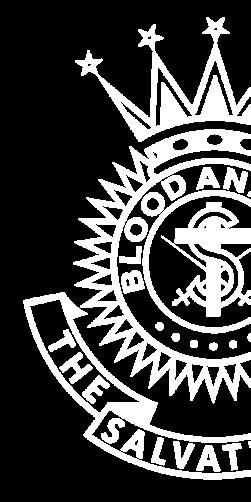

Your local Salvation Army centre



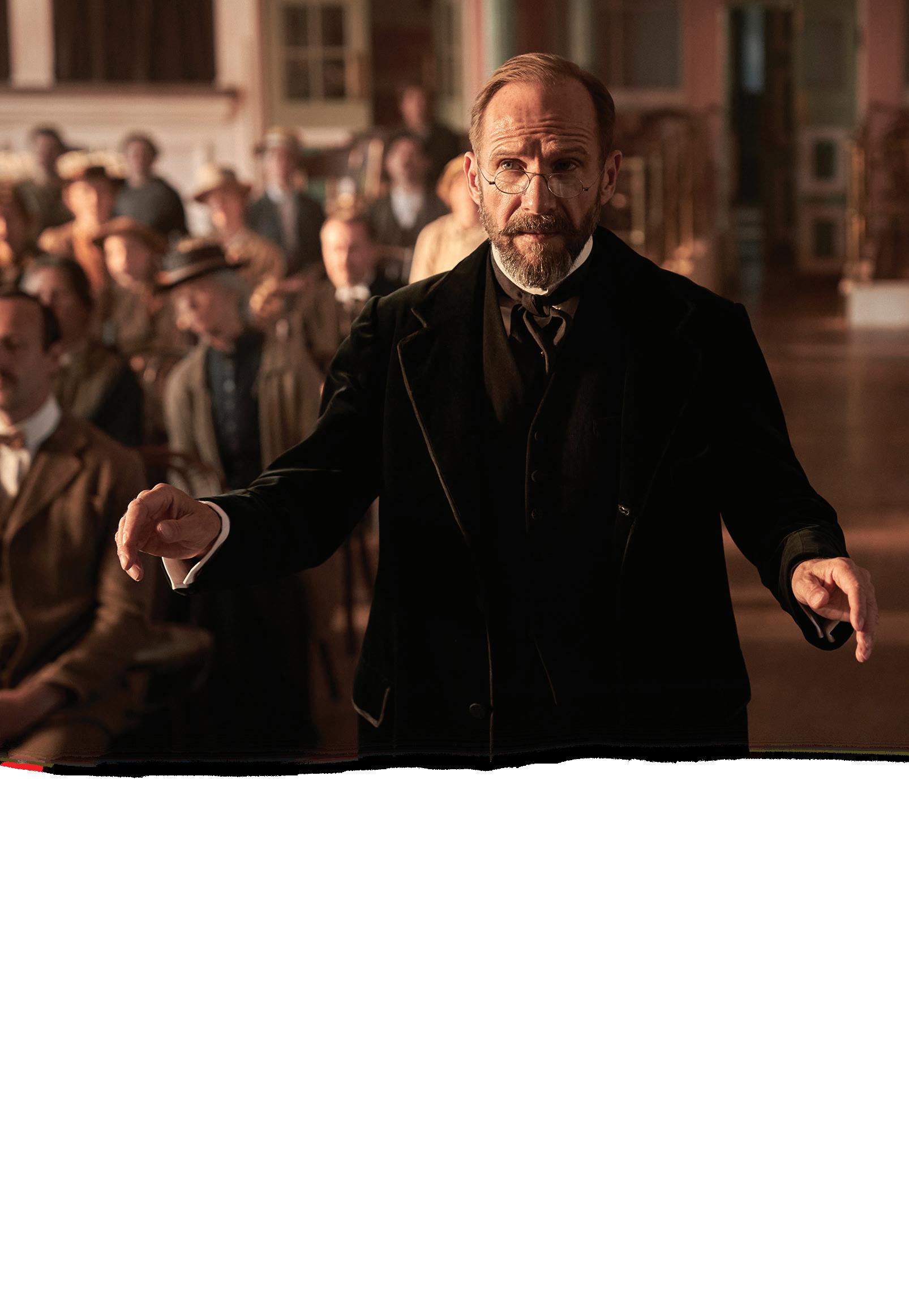
A war time choral society is looking to bring peace and comfort
By Claire Brine
As war rages on the Western Front, a choir in Yorkshire is creating some harmony. Or it hopes to – if it can secure a choirmaster and some new young men to swell its ranks. As the townsfolk do their best to keep calm and carry on in the face of global conflict, they find comfort and strength in singing together. And, in Alan Bennett’s latest film, The Choral, making music brings the community renewed hope.
It’s 1916 – nearly two years since the war started and just a few months before the Battle of the Somme. In the fictional town of Ramsden, positive spirit is faltering. The community has grown too accustomed to loss.
Telegram boy Lofty (Oliver Briscombe) has the thankless job of delivering devastating news to families who are desperate for their boys’ return. Too young to join the army – yet – Lofty often wonders what the future holds for him and his friend Ellis (Taylor Uttley). He knows that when the pair hit 18, they are likely to be conscripted and packed off to war.
It’s during this time of uncertainty that the chairman of the choral society,
S a l vation ArmymemberMary is an accomplishedsinger
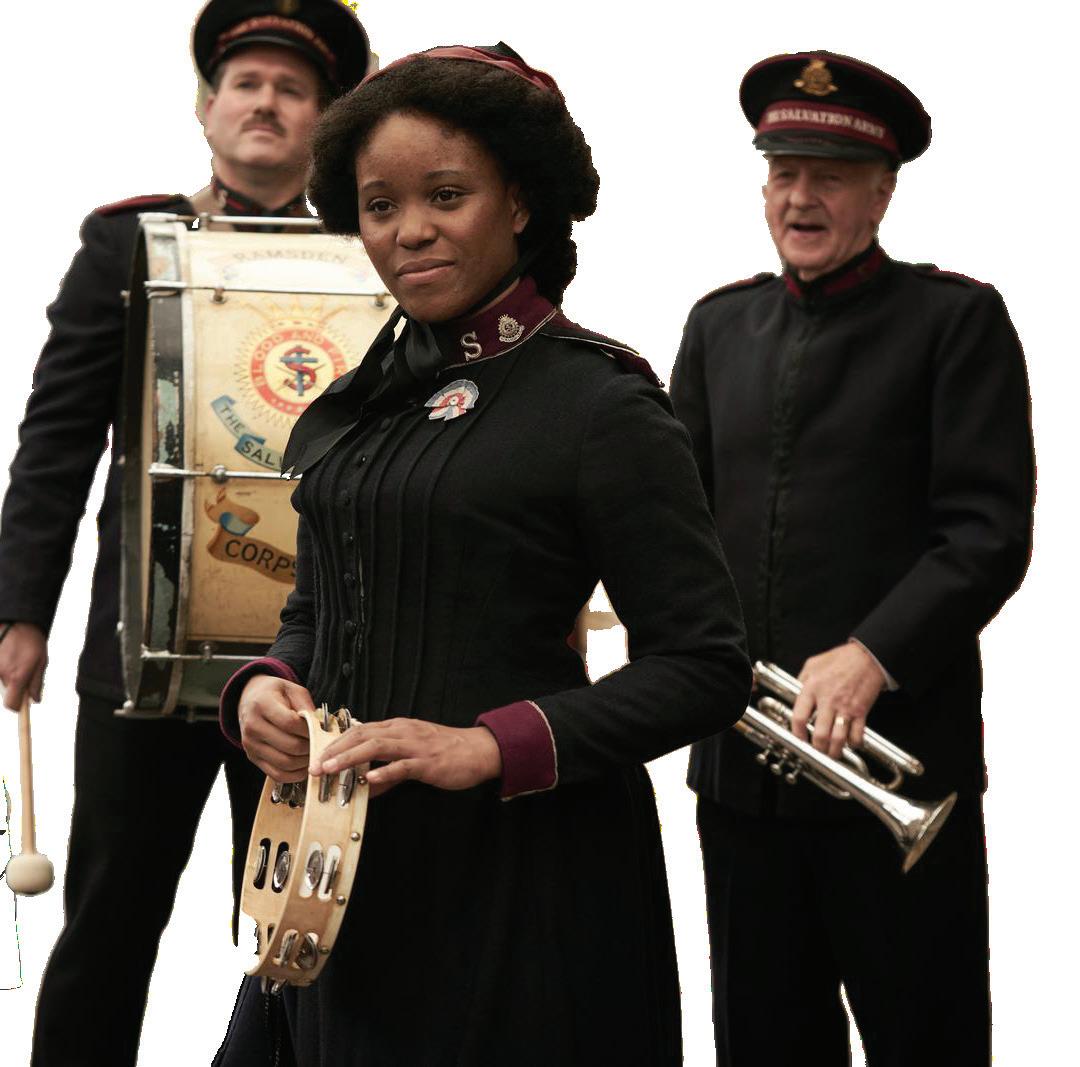

Alderman Duxbury (Roger Allam), is seeking new recruits for the town’s choir. Having lost his only son to the war, he’s eager to stage an ambitious concert that will help him process his grief.
Lofty, Ellis and other townsfolk, including Salvation Army member Mary (Amara Okereke), are keen to join the choir for the sense of purpose and hope that its music can offer. But Duxbury is also on the lookout for a new choirmaster – and Dr Henry Guthrie (Ralph Fiennes) appears to be the best candidate.
The problem? He has been working in Germany. The choir’s committee members are wary of where his allegiances lie. Should they trust him? They know that the likelihood of creating beautiful music without his expertise is slim.
This is ‘a film about community, change and people’s fear of the unknown’, says producer Damian Jones. ‘It’s a story about a town in flux, full of regret and loss, but also hope and naivety.’
Some would say that such emotions are part of the universal human experience – and that not much has
changed since the First World War ended. We still need community. We still suffer loss. Our world today faces the unknown. We long for hope – and peace.
When life is unpredictable and scary, it’s easy to feel powerless and despairing. Perhaps we feel that we have no control to change anything. But when we believe in Jesus there is everlasting hope to cling on to.
At a time of political unrest and great uncertainty, Jesus gave his friends the assurance: ‘The world will make you suffer. But be brave! I have defeated the world!’ (John 16:33 Good News Bible).
Through his death and resurrection, Jesus offers those who put their trust in him the promise of eternal life. It means that they will not be defeated by the suffering they face on Earth.
Instead, we can all have hope. By overpowering death, Jesus gives us the opportunity to experience everlasting joy and peace in Heaven.
Whatever difficulties come our way, whatever happens in the world around us, hope is never lost when we join the side of the one who so confidently offers it.
What have been your favourite songs recently? If you’re a Spotify user, you may be about to find out. Every 12 months, the music streaming service collates a bespoke playlist of each user’s most frequently played tracks: a summary of the music that defined their year.
But Radio Times columnist David Hepworth has criticised a tweak to Spotify settings, which enables people to remove their guilty pleasures – tracks that might be perceived as uncool – before sharing the playlist with friends and family.
‘The notion that you should ever feel guilty about deriving pleasure from any piece of music seems about as wrong-headed an idea as it’s possible to entertain,’ he wrote. ‘It plays into the fallacy that some people have musical taste and others don’t.’
Yes – life is too short to care about what others think of our taste in music. I’ve given up trying to be trendy since my teenage years, which has been wonderfully liberating.
I’ve
So it delighted me that, in the latest series of BBC1’s Northern Irish police drama Blue Lights, one of the officers undermined his cool reputation by admitting his love for Westlife. Constable Shane Bradley described the boy band’s ‘World of Our Own’ as a ‘stonecold banger’ and the singers as ‘wee angels’. His colleagues – while ribbing him for it – loved him all the more for his confession.
There’s something to be said for authenticity. It can be tempting to curate our personalities to please others. I’m certainly guilty of doing that. But I’m learning that being honest about who we are can actually deepen relationships.
I’ve also discovered someone I can be totally myself with – God. In one of my favourite Bible passages, the writer acknowledges to God, ‘You have looked deep into my heart, Lord, and you know all about me’, before he goes on to describe the way in which God is always with him to ‘guide’ and ‘protect’ him (Psalm 139:1 and 10 Contemporary English Version).
It is beautiful to be fully known and fully loved. I believe that nothing I do or say can scare God away.
Whoever we are, his unconditional love can be the soundtrack to our lives. We just need to hear him out.
More than 9 million UK adults – 17 per cent of the population –are struggling to repay their debts, according to research commissioned by Christians Against Poverty (CAP).
Its Picture of Poverty report, based on figures from polling company Opinium, also revealed that 9.5 million UK adults don’t have enough to cover the cost of their essentials.
The report explained that up to 30 per cent of those in debt have gone without electricity or gas over the past year. Additionally, 28 per cent of UK adults experience daily anxiety about finances.
Stewart McCulloch, CEO of CAP, says that the charity’s workers at its church-based debt centres ‘are seeing deep levels of poverty’ among some of the most vulnerable groups, such as families with young children and people living with disabilities.
The winners of the Grief Has No Rules book competition are G. Ball of Leighton Buzzard and D. Vervoort of Leyland. Rachel’s daughter Hannah likes to collect LOL dolls.
warcry@salvationarmy.org.uk
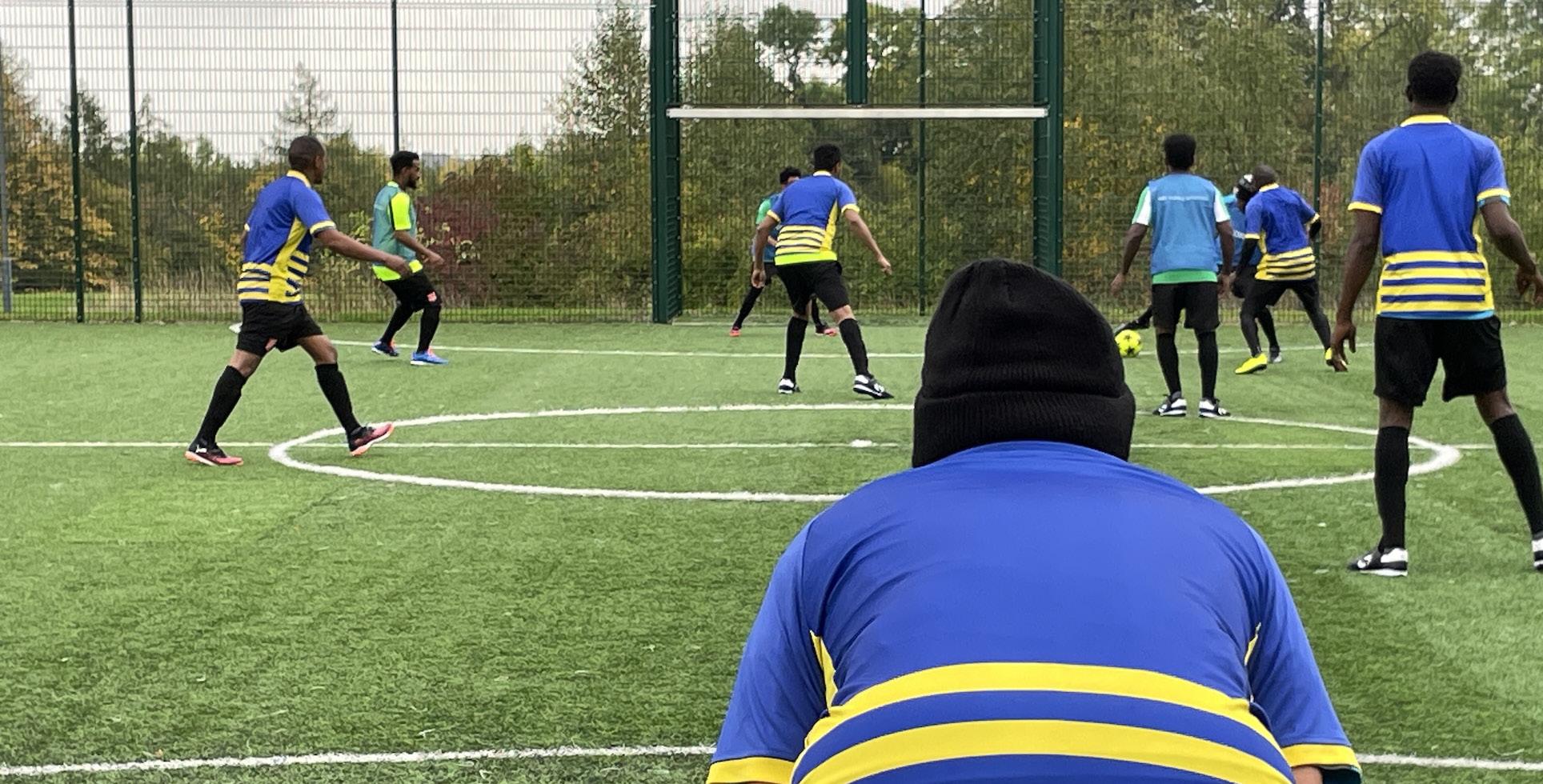
Survivors of human trafficking and modern slavery took part in a sport and wellbeing day organised by The Salvation Army.
The event, held at the University of Warwick, celebrated survivors’ progress and highlighted the role of exercise and teamwork in rebuilding lives.
The survivors, from safe houses and outreach services across England and Wales, participated in activities such as football, badminton and rock climbing – all designed to boost confidence, develop skills and support recovery.

Olympic diver Andrea Spendolini-Sirieix revealed on Instagram that reading the Bible is a valuable part of her morning routine.
The Team GB athlete – who won a bronze medal in the 10m synchronised platform event at the Paris Games last year – said: ‘When so much of my life as an athlete moves at a million miles an hour, these slow, calm mornings are a blessing.
‘Taking my time is the best part of my day. I sit, eat my ... oats, read my Bible and let the day start slow before it all speeds up. It might look boring from the outside, but this routine sets me right. It fuels me for everything else that comes next.’

Matthew Lewis (pictured), who plays a crime-solving priest in Channel 5’s Murder Before Evensong, told Radio Times that he is fascinated by the Christian faith of the Rev Richard Coles, who wrote the novel on which the drama is based.
The actor said: ‘I’ve had more than my fair share of theological discussions and debates with him, which have been a real pleasure.’
Matthew also explained that, although he does not consider
A composer whose works have featured in films such as Richard Curtis’s Time and who has frequently reflected his Christian faith in his music is having his 90th birthday marked in a series of events in Oxford.
The festival, 90 Years of Arvo Pärt: A Reflection, runs from 11 to 16 November and will celebrate the Estonian composer’s works, such as ‘Anthem of St John the Baptist’ and a setting of Jesus’ words from the Gospel of Matthew, ‘Beatitudes’.
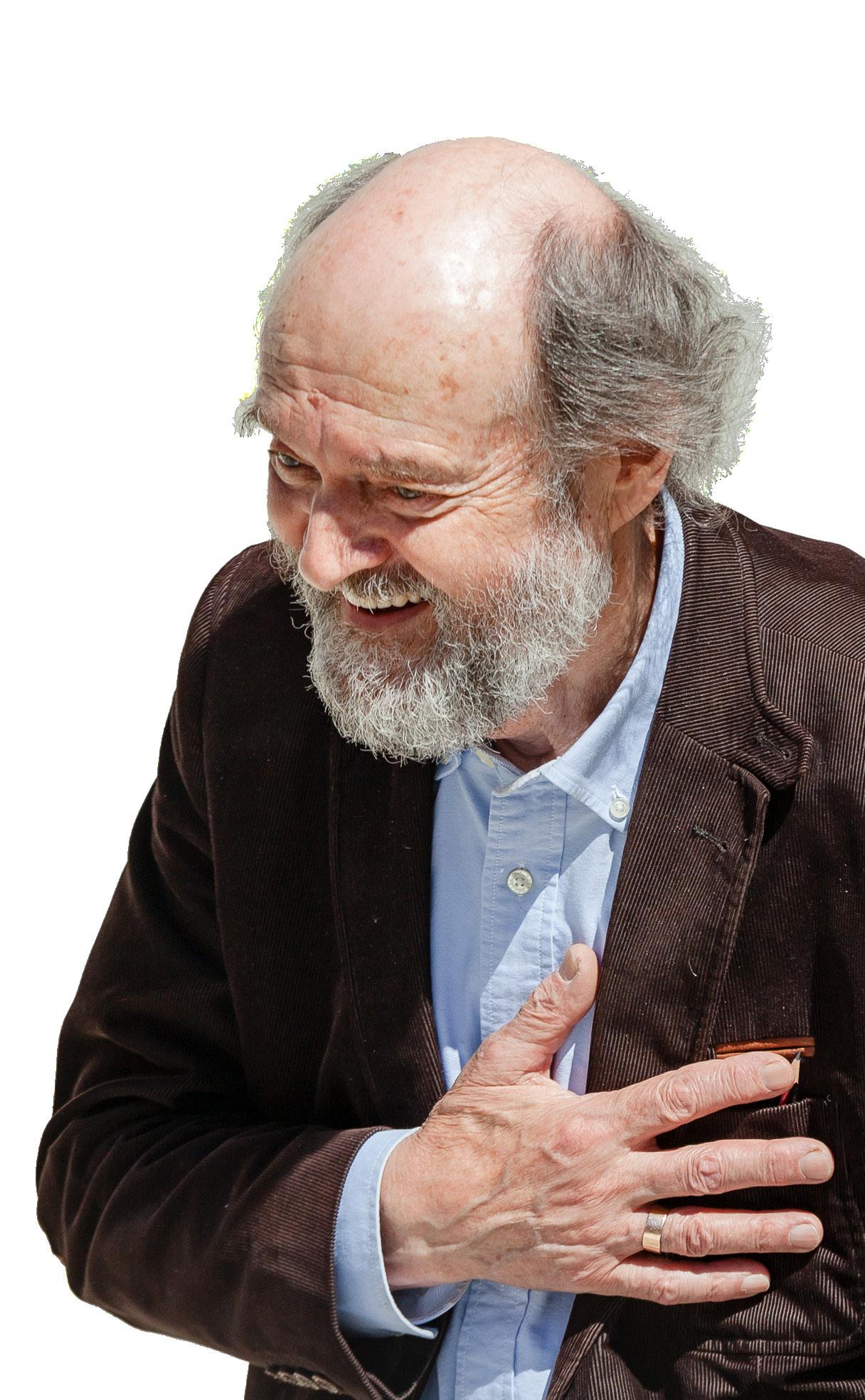

Daisy Scalchi, BBC head of commissioning, religion and ethics, wants viewers to feel ‘invited’
Gospel sounds at Cardiff’s City Church
The TV series Prayer and Reflection is giving viewers a glimpse into acts of worship
Feature by Philip Halcrow
‘It’s like a small glimpse of Heaven,’ says a worshipper outside City Church in Cardiff, where gospel singing is accompanied by keyboards, drums, guitar and sax. In London, a member of the congregation at St John’s Wood United Synagogue, where the morning service has featured prayers in Hebrew, reflects that the idea of worship ‘is to really build and kindle that connection with God’. And at the Guru Nanak Darbur Gurdwara in Gravesend, where the daily service began at four o’clock in the morning, a man says that, by the time he leaves the place of worship, his ‘mind is relaxed’.

The BBC1 series Prayer and Reflection is capturing worship services around the UK, giving viewers a glimpse into various religions – and speaking to some of the people who live them out.
Over a video call, Daisy Scalchi, head of commissioning for religion and ethics at the BBC, explains that the idea behind the programme is to portray ‘something which is simple and well known’ to the members of a specific faith but which may not be so familiar to other people.
‘We wanted to reflect faith communities in the important moment of worship,’ she says, ‘while also inviting people who weren’t from each particular faith community to understand a little bit more about the significance of the worship and some of the basics of the faith.’
The series is inviting viewers into the buildings of a variety of Christian, Jewish, Islamic, Sikh, Hindu and Buddhist traditions – heading towards a Christmas service at St Giles’ Cathedral in Edinburgh.
‘We wanted to look at denominations that were very popular and at denominations that perhaps don’t get as much air time as some of the others, but which nevertheless have a strong community,’ says Daisy.
‘Wherever we went, the idea was that the act of worship should not be very different from what you might discover if you just happened to walk through the doors on any given day. We wanted something that felt accessible and very typical.’
To make the acts of worship more
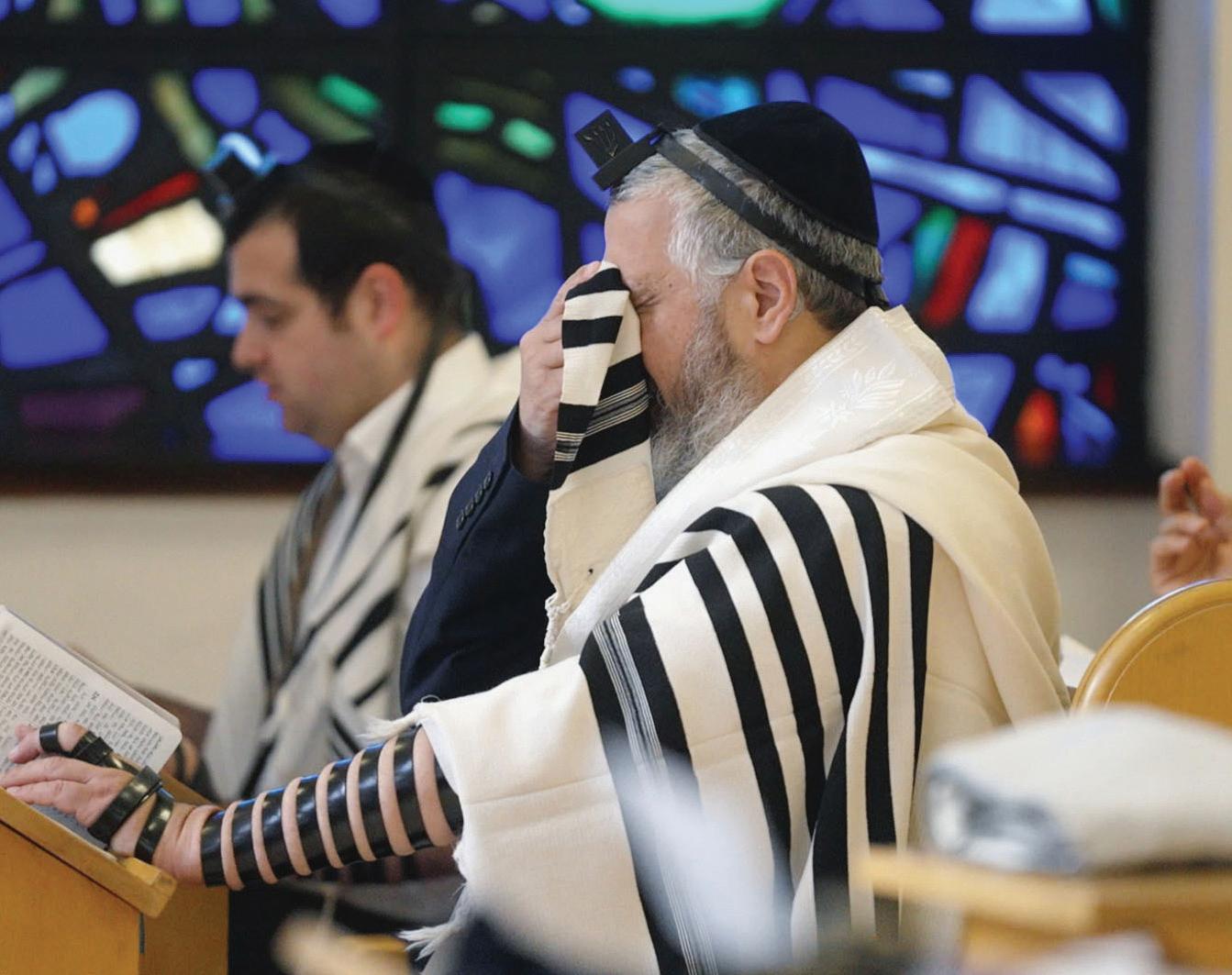
accessible to viewers who may be unfamiliar with them, the programmes occasionally provide snippets of commentary on what is taking place. At the synagogue in St John’s Wood, for instance, Dayan Ivan Binstock, its senior rabbi, explains that the black leather boxes – or tefillin – which worshippers are tying round their arms contain Scripture. At the Gravesend gurdwara, its general secretary, Jagdev Singh Virdee, points out that Sikh worshippers, when they are able, sit on the floor to symbolise equality.
But, says Daisy, the programmemakers did not want to make viewers feel as if they had ‘dropped into a GCSE RE lesson’.
She says: ‘The thing that took us the longest and involved the most discussion was where to draw the line. What would enable us to explain the basics to someone who wasn’t from that particular faith, and what would be simply saying the very obvious thing to someone who
didn’t need it to be explained?
‘We collaborated closely with the places that allowed us to film. At times, we came to the conclusion that we were using too much voiceover, because it was moving the programme too far away from what we wanted – which was to allow the viewer to engage in a service of worship or just to sit back and listen.
You should feel you are taking part or observing
‘The bottom line is that you should just feel as if you are taking part in or observing a service of worship, but that there is also some explanation of key points.’
The programme-makers also worked with the worshipping communities on how best to turn a real-life service – of real-life duration – into a TV episode. One of the
acts of worship taking place concurrently in the gurdwara, for example, is a 48-hour continuous reading of the religion’s sacred text, the Guru Granth Sahib.
‘As much as I would love to have a continuous 48-hour cycle of prayer,’ says Daisy, ‘we weren’t able to do that. So the programme-makers used their own expertise and worked closely with the gurdwara to identify what happens over that period of time.
‘The question was: If we are only able to represent 29 minutes of what happens, which are the bits that give a true representation of the faith? What are the essential parts of the service to give someone an authentic idea of what it might be like to worship in a Sikh gurdwara?
‘But, of course, the TV programme can only serve as an introduction to a place
Turn to page 8 f
From page 7
of worship. The best thing to do is to just go. I hope that people will watch this series and decide to walk through the doors and see what it’s like.’
As well as showing the acts of worship in progress, the programme-makers speak to some of the people who attend them.
‘When viewers are watching the series, I want them to feel that they’re being invited to participate,’ says Daisy. ‘So I think that hearing from people who do participate is helpful.
‘When the programme-makers came up with the idea of speaking to people who have been at the service, I thought it was a lovely idea – because what better way to connect with the reality of worship than hearing how it impacts the individual or why they want to worship in that particular way?’
So viewers hear a Muslim at the Belfast Islamic Centre say: ‘We are always busy in our lives, but whenever we come to pray, we forget about the
struggles of life and we think about God.’
After the Jewish morning prayer service in St John’s Wood, a member of the congregation reflects: ‘It’s important to have a synagogue, because part of being Jewish is being there for each other.’
It’s about people coming together to connect
Daisy says: ‘What struck me was not only the differences in practices across all the different faiths, but also the similarity in what people get from taking time out to hear scripture, to reflect and to pray alongside fellow community members.
‘Watching these acts of worship one after the other has been an education, because, as well as seeing how each faith differs – with different founders, different founding principles, different
texts – there are clearly similar threads. It’s about people coming together to connect with their faith through music, voice, gesture, action, prayer, reflection and community.’
The member of the congregation at the City Church in Cardiff who feels that its worship offers a ‘glimpse of Heaven’ says: ‘The message of God is love – God so loved the world that he gave his only Son. And so it’s not about condemnation. It’s not about what you can’t do.’
And spreading her arms, she adds: ‘God says, “My arms are this wide and all are welcome.”’
l Prayer and Reflection is broadcast on BBC1 on Sundays – with a oneweek break on 9 November – and on iPlayer
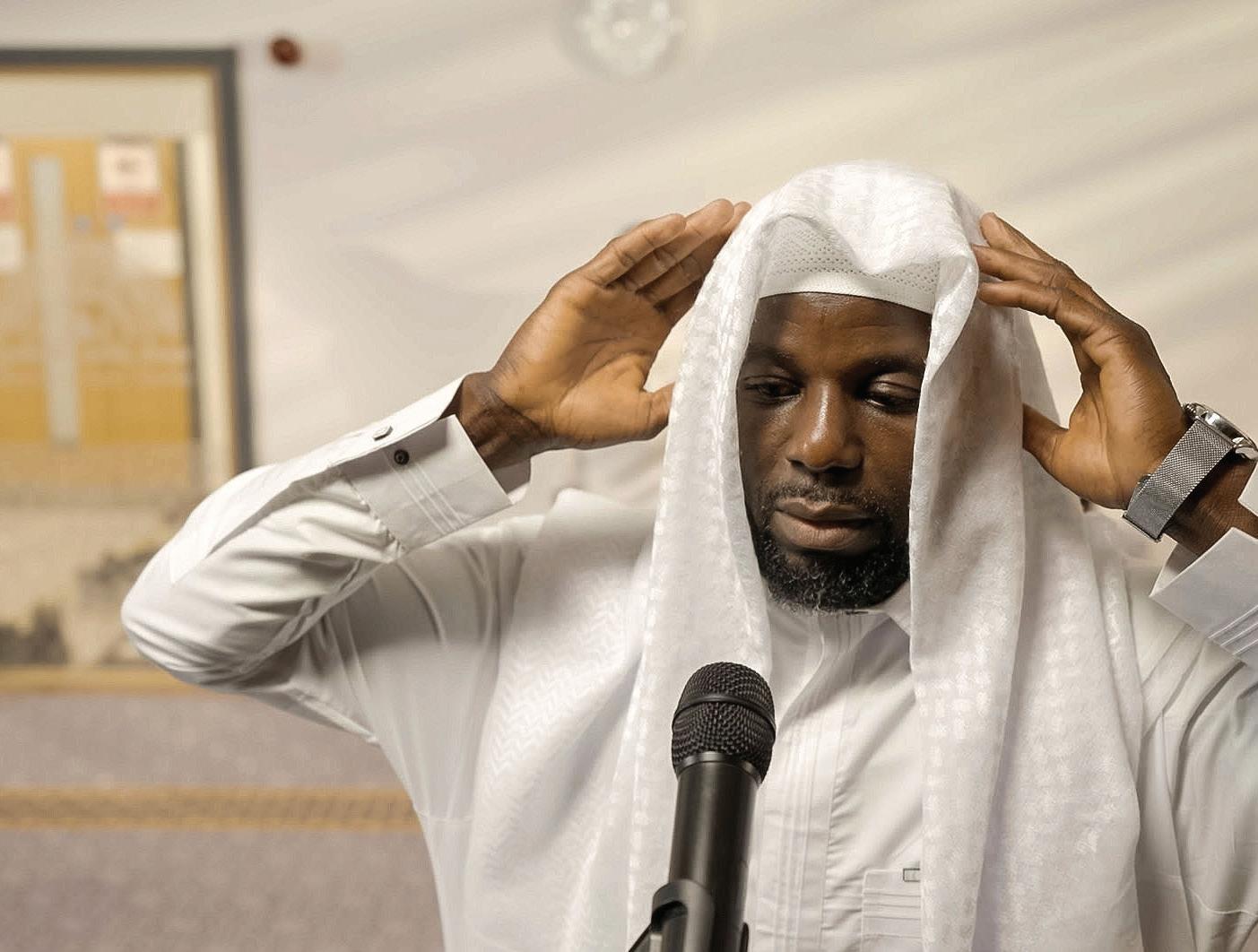

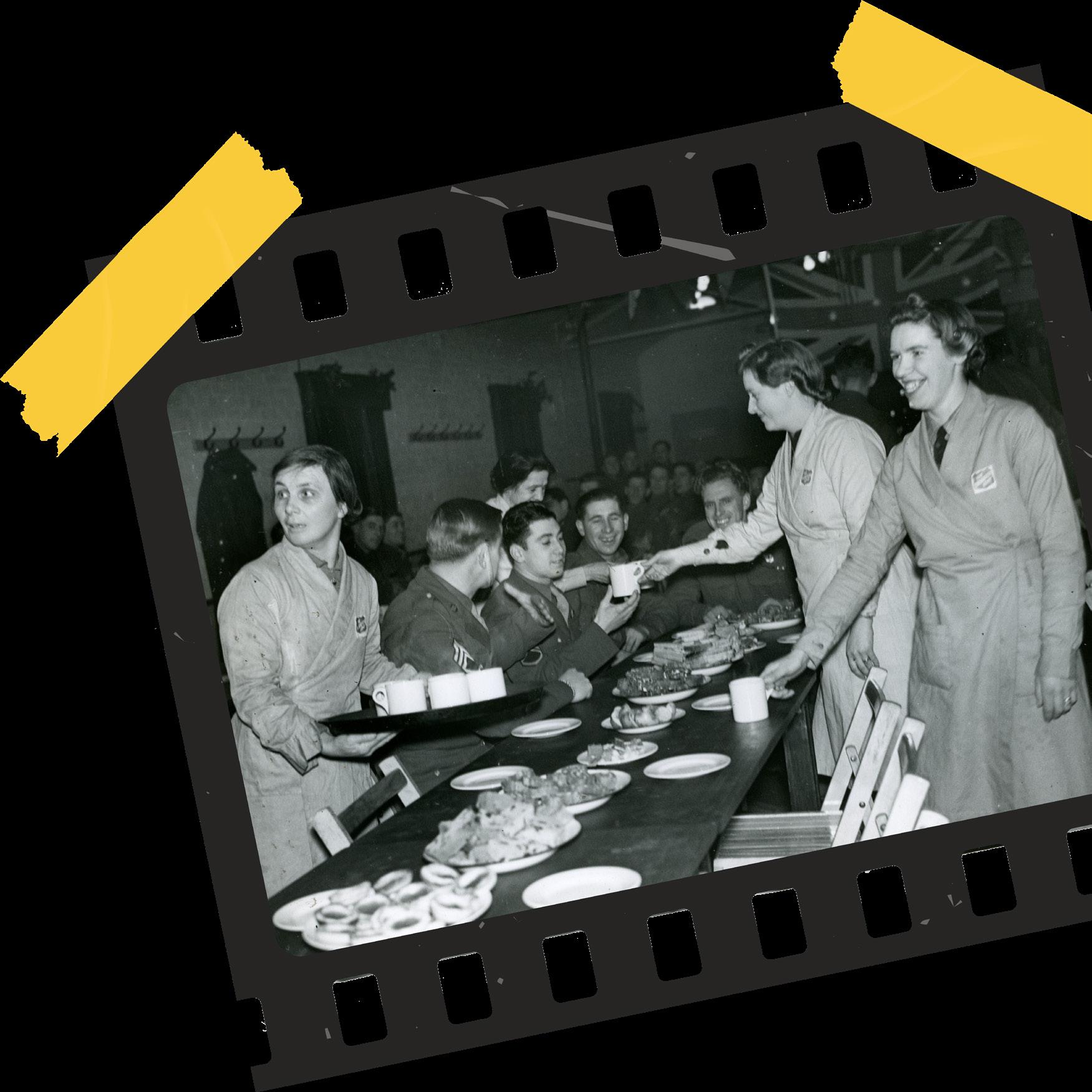
In 2025, The Salvation Army celebrates its 160th anniversary. During the year, we will be looking back at some of the history of the church and charity. This time, as millions gather to remember those who have died serving their country in the armed forces, we reflect on the work of The Salvation Army during the Second World War
Feature by Steven Spencer
At the outbreak of the Second World War in September 1939, The Salvation Army was active in 97 countries, including all the main combatant nations, such as Germany, Japan, France and Great Britain. With members fighting on all sides in the conflict, The Salvation Army made a commitment to maintain a politically neutral stance, and its international leader, General George Carpenter, let it be known that he would not use the word ‘enemy’, nor would it appear in Salvation Army publications.
However, Salvation Army activities were severely restricted in all countries
occupied by Nazi Germany. In Germany itself, the war years had a crippling effect. Salvation Army church leaders were conscripted for military service, property was seized and fundraising banned. The Salvation Army was completely suppressed in Estonia, Italy, Japan, Korea and Latvia.
It became increasingly difficult for The Salvation Army’s International Headquarters in London to maintain contact with its churches and centres in countries under Axis control, so neutral Sweden became a channel for administrative communication within Europe. In 1941, Swedish officers
Commissioner Karl Larsson and Adjutant Erik Wickberg decided to sever all contact with London to allow better communication with their colleagues on the continent, and Sweden became a de facto headquarters for mainland Europe for the remainder of the war.
The Salvation Army in the UK continued to co-ordinate its church and social programmes from its headquarters in London. A war emergency department was set up to co-ordinate these programmes, including the work carried out by The Salvation Army’s Red Shield
Turn to page 10 f
From page 9
Services, which supported members of the armed forces on and off military bases in the UK.
Such support included the provision of hostel accommodation for service personnel around the country and the running of clubs, where military personnel could pick up chewing gum, soap, toothpaste and sewing kits.
There would be 400 clubs in the UK before the end of the war, and they did not only cater for men – the first club for women opened at Perth in Scotland in October 1939.
The Red Shield Services also provided more than 200 mobile canteens, which served hot drinks and food to the armed forces, emergency services and civilians – especially those affected by bombing.
These canteens were described initially as ‘improvised combined tea-car and ambulance’ but they rapidly developed into a well-stocked shop on wheels, supplying all kinds of items, including
hot tea, razor blades, writing paper and toiletries.These Salvation Army canteens were at the Channel ports to meet the soldiers evacuated from Dunkirk in 1940.
The support of Red Shield clubs and canteens followed British troops around the world. A War Cry for the Middle East was published in Cairo from 1942, aimed at Salvationists serving with the armed forces in the region. Salvationists formed their own brass bands, such as the Cairo Red Shield Band and a band at Haifa.
When British troops re-entered the European mainland, they were followed by Red Shield mobile canteens. In France, the canteens arrived only a matter of days after the D-Day landings and closely followed the advance of Allied troops into Germany. The first British mobile canteen had arrived in Berlin by May 1945 and by August there were 12 Red Shield clubs operating in Germany.
At the beginning of the war, Salvation Army officers assisted in the evacuation
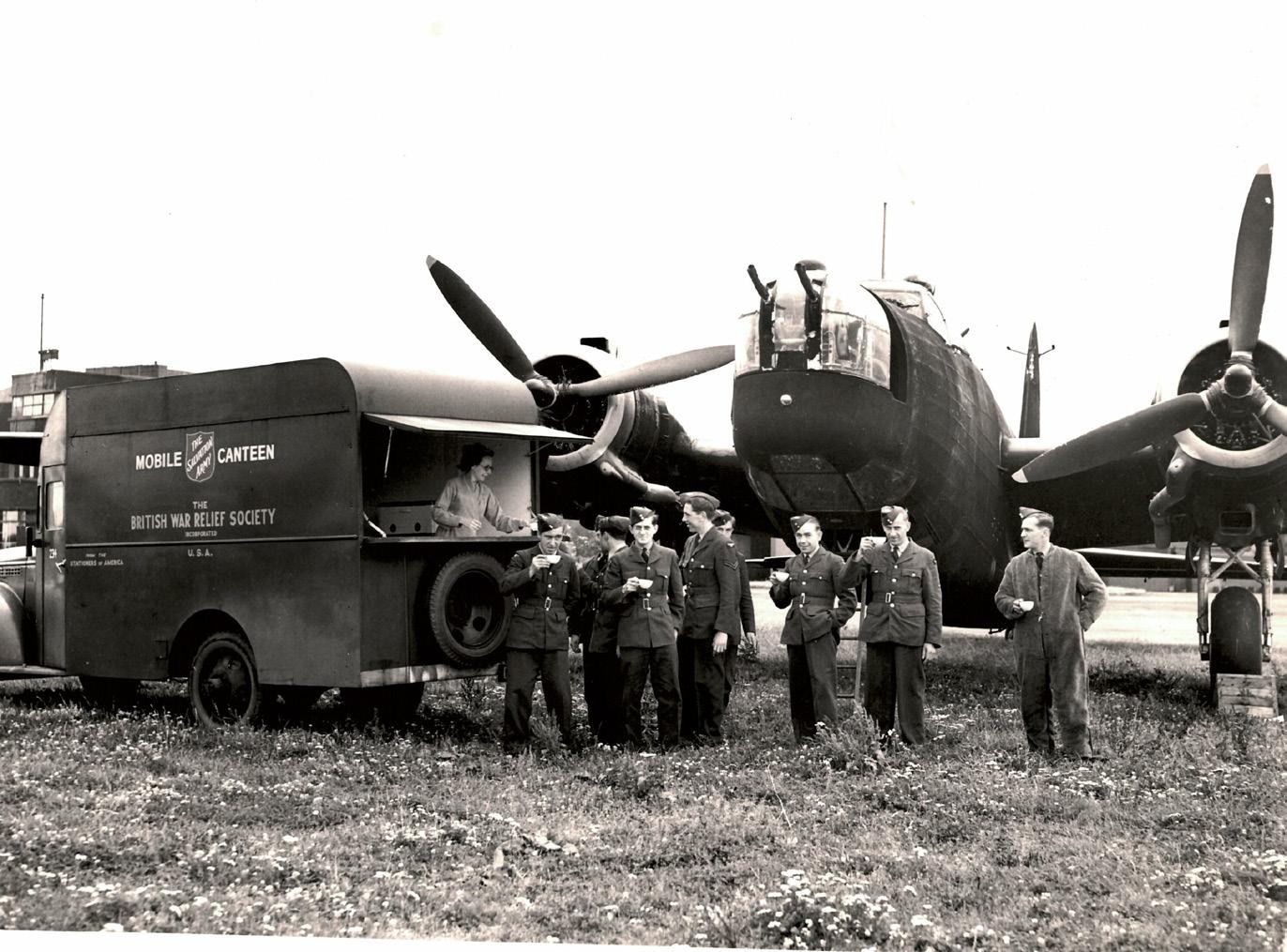
of children from London, while all Salvationists were encouraged to make ‘comforts’, such as socks and gloves, to send to members of the armed forces serving abroad.
The challenges on the home front were also acknowledged, and the War Cry set up a pattern service which provided clothing designs to be made at home. A war comforts department was established which developed a network of 100 branch depots and hundreds of distributing agents throughout Britain. Nicknamed the Generosity Warehouse, the department distributed garments to civilian war victims, along with sleeping bags, bedding, boots, shoes and, for children, Christmas boxes.
As war raged on, there was a personal cost for many Salvationists. Brigadier Mary Climpson was working in France before the German invasion of 1940. She was being evacuated when her car was attacked by German planes near Dieppe and she was killed. Colonel Mary Booth was serving with The Salvation Army in Belgium when Germany invaded. She was thought to be a spy but was later moved to the civilian internment camp at Liebenau, where she remained until 1942.
Many members were interned by the Japanese in southeast Asia, including 14 Salvation Army ministers at Changi camp in Singapore. There were also several other Salvationists imprisoned in Changi who established their own Salvation Army church inside the camp.
Wartime restrictions meant that no new Salvation Army halls were built until well after the end of the war, and paper rationing led to the reduction in size of the organisation’s publications. The Salvation Army itself was a victim of the Blitz – its headquarters in the City of London was destroyed in May 1941. The William Booth College in south London was used as a temporary HQ for the remainder of the war.
As religious ministers, Salvation Army officers were exempt from conscription. A small number resigned during the war years to enable them to join the armed forces, and at least two of them served with British Intelligence. Some Salvation Army officers were appointed to work as welfare officers from 1941, certificated
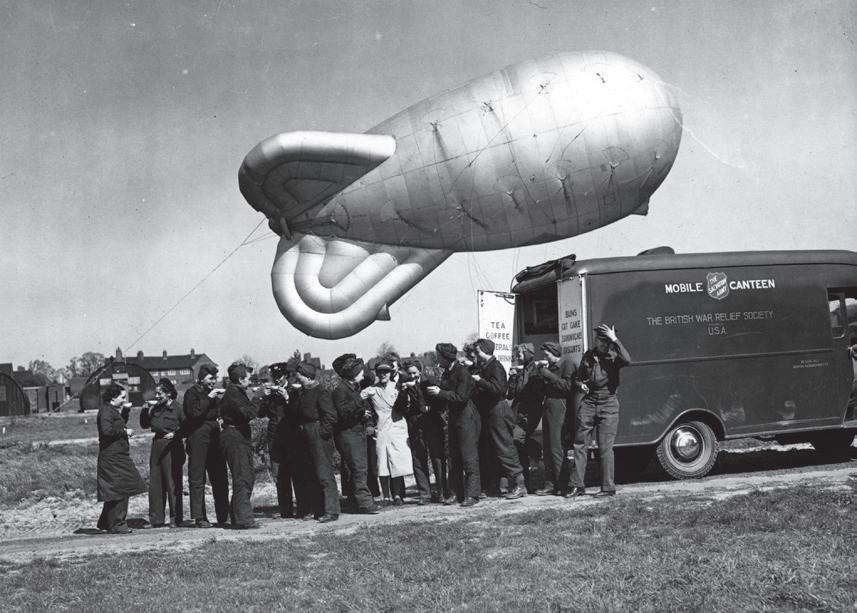


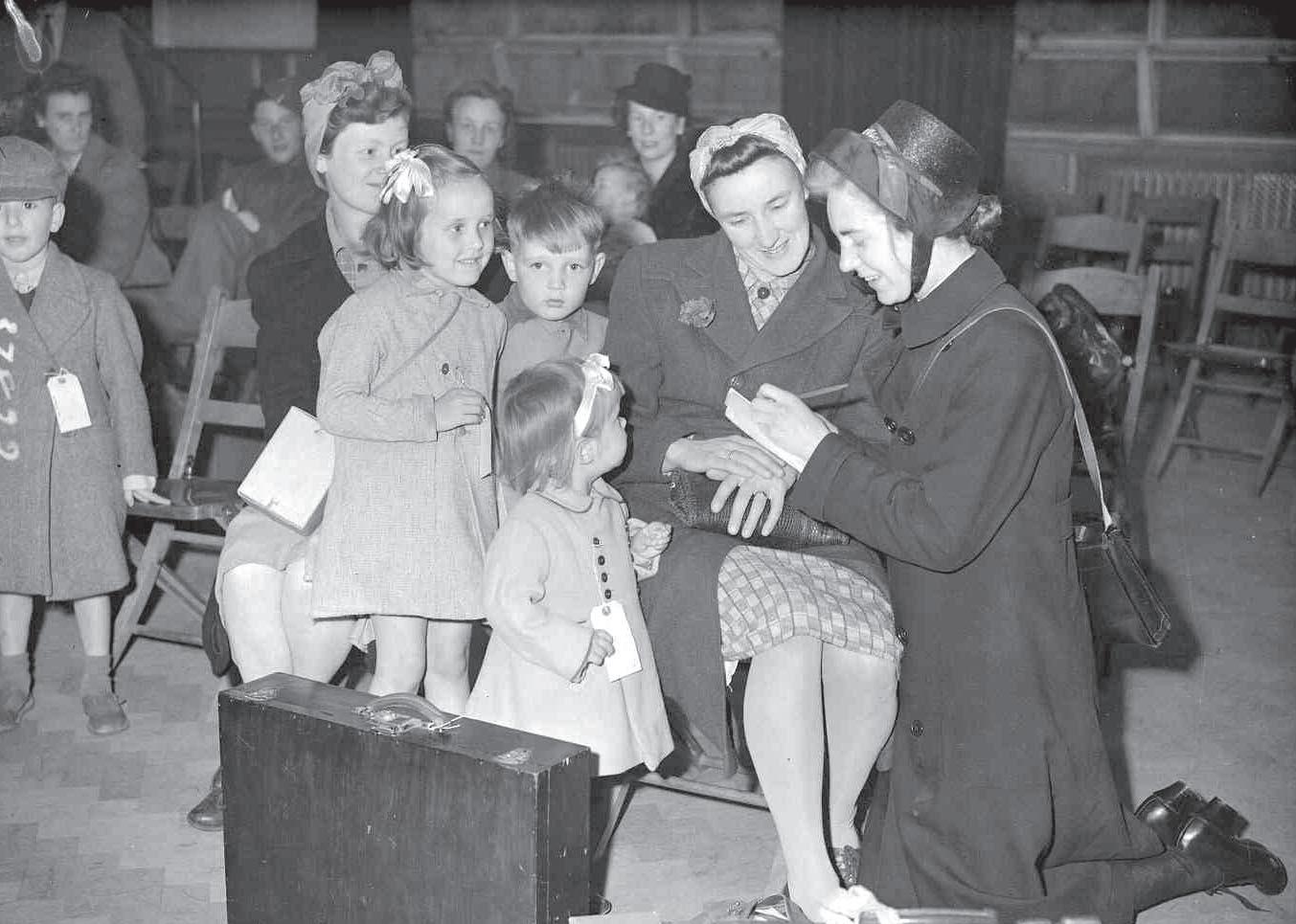

by the government war office. They looked after the spiritual needs of British Salvationists in the armed forces.
The Salvation Army had long opposed militarism, and some senior officers were supporters of pacifism. A number of Salvationists were granted exemption from military service on conscientious grounds. International Headquarters gave guidance to those Salvationists who wished to refuse conscription at a military service appeal tribunal. Officers could be asked to appear at these tribunals in support of them.
As the tide of the war turned against the Axis powers, a postwar relief department was established to co-ordinate The Salvation Army’s relief work in occupied Europe. This was part of the Council of British Societies
for Relief Abroad (CBSRA), which co-ordinated relief teams run by a variety of voluntary organisations.
Anumber of Salvation Army relief teams or sections were attached to the British Army of the Rhine (BAOR) and worked with civilian populations in France, the Netherlands, Germany and Austria. Their work included maintaining camps for internally displaced people.
A home for children was opened at Lesse, a holiday home for children called Sunnyside at Tralau and a maternity
home in Berlin to replace one destroyed by Allied bombing.
As the international Salvation Army had been separated by the years of war, the work of the organisation helped to reunite Salvationists from across Europe.
In the War Cry of 21 July 1945, British Salvationists reported back from Lubeck on the first joint worship with German Salvationists since 1939.
l Steven Spencer is director of The Salvation Army’s International Heritage Centre, London
There is no set formula to becoming a Christian, but many people have found saying this prayer to be a helpful first step to a relationship with God
Lord Jesus Christ,
I know that I have done things in my life that are wrong and I’m sorry.
Thank you that I can ask you for forgiveness because of the sacrifice you made when you died on the cross.
Please forgive me and help me to live a better life in the future as I learn how to love you and follow your way of living.
Thank you, Lord Jesus.

If you’ve prayed this prayer, scan the QR code or contact us using the coupon on this page




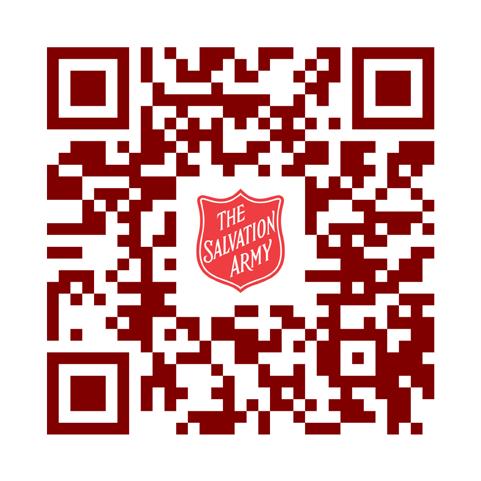
Nigel Bovey gives chapter
Written between about AD50 and AD100, the New Testament comprises 27 books, beginning with the four Gospels and ending with the mysterious Book of Revelation.
The Gospels are accounts of the birth, life, teachings, actions, death and resurrection of Jesus. Although dates are disputed, scholars generally calculate that Mark was the first to be written and John the last. Being biographical summaries, Matthew, Mark and Luke are known as the Synoptic Gospels. John is focused on the nature of Jesus’ divinity.
The Gospels are followed by the Acts of the Apostles. Written by Gospel writer Luke, Acts chronicles the birth and growth of the early Church. Empowered by the Holy Spirit, the disciples of Jesus attest to his resurrection and preach salvation in his name. Focusing first on their Jewish countrymen, they then take the good news to Gentile nations.
The book’s leading characters are Peter, who is based in Judaea, and Paul, who embarks on four evangelistic tours of the eastern Mediterranean.
Paul is credited with authoring the 13 letters that follow the Book of Acts. These letters give instruction in the beliefs and practices of fledgling Christianity. The first nine letters are addressed to congregations he visited on his travels. The next four are personal, pastoral correspondence. The letters in both groups are arranged not in order of importance or inspiration but in descending order of length.
Paul’s letters are followed by one whose writer is unknown. The Letter to the Hebrews explains the relationship between Jesus Christ and Judaism. For the unknown writer, Jesus is the ultimate expression and fulfilment of God’s covenant with his ‘chosen people’.












The War Cry invites readers to send in requests for prayer, including the first names of individuals and details of their circumstances, for publication. Send your Prayerlink requests to warcry@salvationarmy.org.uk or to War Cry, 1 Champion Park, London SE5 8FJ. Mark your correspondence ‘Confidential’. Address
The New Testament continues with seven more letters variously credited as being written by Jesus’ early followers James, Peter, Jude and John.
Finally, Revelation is the New Testament’s only book of prophecy, written against a background of Roman persecution of Christians. Beyond its opening messages to seven churches, it is a book of heavenly visions.
Judgement, tribulation, the battle at Armageddon, the overthrow of Satan and the Second Coming are writ large.
A mysterious book, Revelation engenders much interpretation as well as debate about the nature and timing of the end of the world.











































































































War Cry




To receive basic reading about Christianity and information about The Salvation Army, complete this coupon and send it to
























London SE5 8FJ a



1 Champion Park























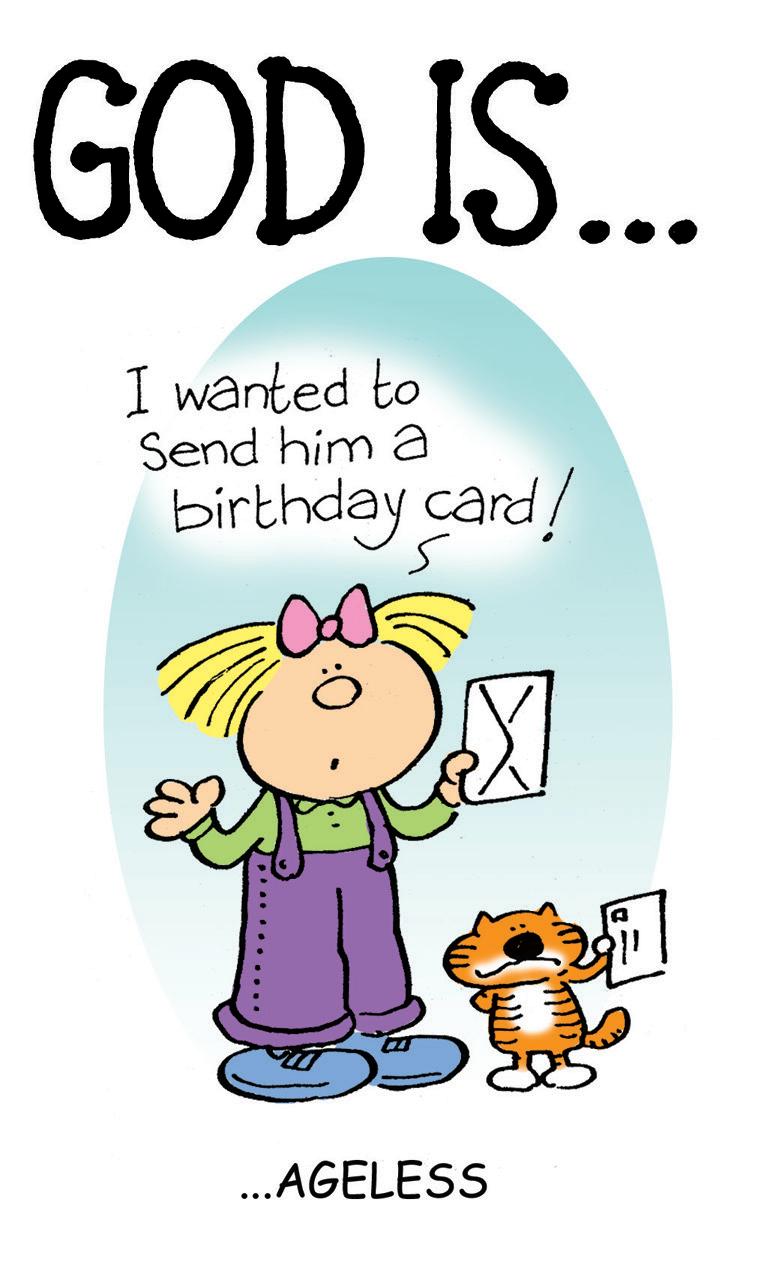

Feature by Ewan Hall
‘Thursday’s here and the weekend’s in sight’ – as social media posts sometimes proclaim in an effort to promote a positive vibe online. But next Thursday (13 November), there’s an invitation to spread a different sort of positivity.
World Kindness Day is an annual reminder of the impact that kindness can have on individuals, communities and countries.
Throughout the day, people are encouraged to carry out whatever acts of kindness they feel comfortable with. It could mean writing letters of gratitude to friends, family or even strangers, or sharing uplifting messages on social media. Meanwhile in schools, children will be taught about the importance of empathy through stories and activities.
Helping to spread positivity in this part of the world is Kindness UK. This non-profit organisation was founded in 2011 with the aim of uniting people through kindness – which it has attempted to do through acts such as distributing 10,000 free chocolate bars at London train stations.
‘Kindness is the cement needed for a future world of harmony and community,’ David Jamilly, CEO and founder of Kindness UK, tells the War Cry
Kindness can certainly be the foundation to build better relationships and communities. However, many of us will have experienced situations where others are unkind to us, and we long to be shown compassion.
The good news is that we all have access to an unfailing source of kindness.
One Bible writer reminded his readers of how, when God ‘made his kindness and love for humanity appear’ by sending Jesus, ‘he saved us, but not because of anything we had done to gain his approval. Instead, because of his mercy’ (Titus 3:4 and 5 God’s Word Translation).
God’s kindness saves us from facing life’s tough times alone – even if we have not always been kind ourselves. His kindness is not conditional or temporary, and it never runs out.
When we choose to turn to God, we receive a kindness that heals, forgives and supports. It’s a support that doesn’t depend on how we feel or what we’ve done – and it’s available every single day.

ACROSS
1. Get better (7)
5. Oarsman (5)
7. Signal by hand (7)
8. Swivel (5) 10. Enthusiastic (4) 11. Sleeplessness (8)
13. Appear (6) 14. Shriek (6)
17. Give sorrow (8)
19. Dispatched (4)
21. Herd of cattle (5)
Severe (7)
Foundation (5)
Feared (7)
Recreation (7)
Responsibility (4)
Watching (6)
Upbraid (8)
Interweaved (5) 7. Cemetery (9) 9. Deeply shocking (9) 12. Repulsiveness (8) 15. Thrown out (7)

16. Dodged (6) 18. Sheen (5)
Peel (4)
Each solution starts on the coloured cell and reads clockwise round the number


1. Spanish rice dish
2. Used for climbing up or down
3. Leave on a journey
4. Not decline
5. Written text of a play or film
6. Erase

Look up, down, forwards, backwards and diagonally on the grid to find these words associated with bravery Fill the grid so that every column, every row and every 3x3 box contains the digits 1 to 9

INGREDIENTS



4 baking potatoes, peeled
1 leek, peeled
1 pack bacon
500ml vegetable stock
2tsp fresh parsley
½ tsp pepper
METHOD


Slice the potatoes into £1 coin-sized slices. Cut the leek lengthways and thinly slice. Cut the bacon into small pieces.
Heat the leek and bacon in a large pan and cook for 10 minutes, until the bacon is slightly browned.
Add the potato slices and cover with the stock and parsley. Season with the pepper, to taste. Cook for 15-20 minutes, until the potatoes are

INGREDIENTS
½ broccoli
3 rashers streaky bacon
Olive oil, for frying
METHOD
Preheat the oven to 180C/Gas Mark 4.
Chop the broccoli into small florets. Slice the streaky bacon once lengthways, then chop into thin strips.
Heat some oil in an ovenproof frying pan and fry the bacon for 2 minutes. Add the onion and broccoli and fry for 8 minutes, stirring often.

Crack 6 eggs into a jug. Whisk until combined.
Add the milk, salt and pepper and whisk again
Take the pan off the heat and leave to cool for
Add the egg mixture and stir, until well combined. Put the pan in the oven to cook the omelette for 20 minutes. Serve hot.
